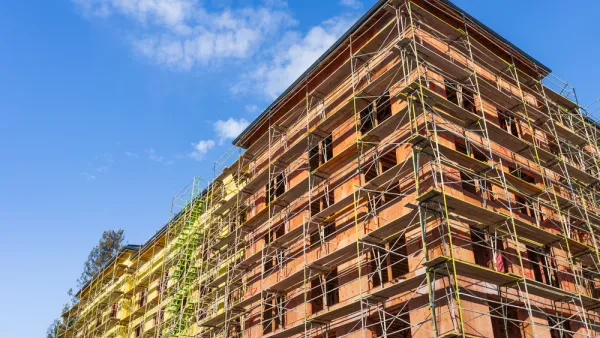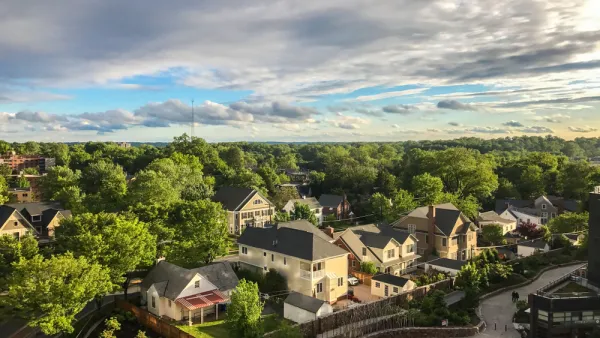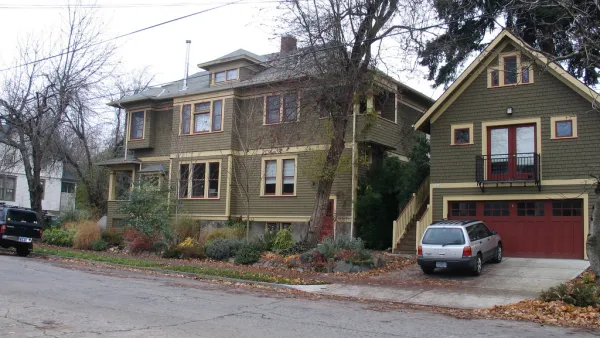An article in The Urbanist suggests the ire over new developments is misplaced.

Natalie Bicknell provides some perspective in the ongoing debate about the impact of luxury housing on housing affordability in the Seattle real estate market, arguing that the focus on luxury properties as a magnet for foreign investment neglects more significant trends in land use:
Immediately after Vancouver’s foreign buyer’s tax became law, discussion focused on potential impacts on Seattle real estate began. While some early reports highlighted stories of international investors, mostly from China, abandoning high cost Vancouver for relatively budget friendly Seattle, the affect of foreign investment on Seattle’s rising housing prices has garnered less attention in local media than high paid tech workers, a growing population, and zoning codes that favor single-family residences over multifamily development throughout most of the city.
Bicknell takes note of a recent study published by the Institute for Public Studies, titled "Who is Buying Seattle? The Perils of the Luxury Real Estate Boom for Seattle," which reveals the "thousands of new luxury residential and rental units continue to be in different stages of development in Seattle, and that many of these properties are owned by limited liability companies (LLCs) or real estate investment trusts that mask the real owners and beneficiaries identities." Still, the report stopped short of making any conclusions about the impact of luxury developments on the Seattle housing market.
While Bicknell recommends that the city further explore the possible outcomes of its current crop of luxury developments, the point here is that the city is already filled with luxury development that aren't conspicuous condo buildings.
"By and large the majority of luxury or high priced properties in Seattle are single-family residences. According to the most recent figures, the median price for a single-family residence in Seattle is $760,000, while the median condo price is $450,000, roughly 41% less expensive," according to Bicknell.
The politics of the city's single-family homeowner constituency was on display, according to Bicknell, in recent debates over the city's Mandatory Housing Affordability program, when "anti-density activists used the construction of luxury condos in Downtown Seattle as proof that increasing density leads to higher housing costs."
FULL STORY: Luxury Housing Creates Affordability Problems in Seattle, but Single Family Zoning Is More Destructive

Analysis: Cybertruck Fatality Rate Far Exceeds That of Ford Pinto
The Tesla Cybertruck was recalled seven times last year.

National Parks Layoffs Will Cause Communities to Lose Billions
Thousands of essential park workers were laid off this week, just before the busy spring break season.

Retro-silient?: America’s First “Eco-burb,” The Woodlands Turns 50
A master-planned community north of Houston offers lessons on green infrastructure and resilient design, but falls short of its founder’s lofty affordability and walkability goals.

Test News Post 1
This is a summary

Analysis: Cybertruck Fatality Rate Far Exceeds That of Ford Pinto
The Tesla Cybertruck was recalled seven times last year.

Test News Headline 46
Test for the image on the front page.
Urban Design for Planners 1: Software Tools
This six-course series explores essential urban design concepts using open source software and equips planners with the tools they need to participate fully in the urban design process.
Planning for Universal Design
Learn the tools for implementing Universal Design in planning regulations.
EMC Planning Group, Inc.
Planetizen
Planetizen
Mpact (formerly Rail~Volution)
Great Falls Development Authority, Inc.
HUDs Office of Policy Development and Research
NYU Wagner Graduate School of Public Service




























